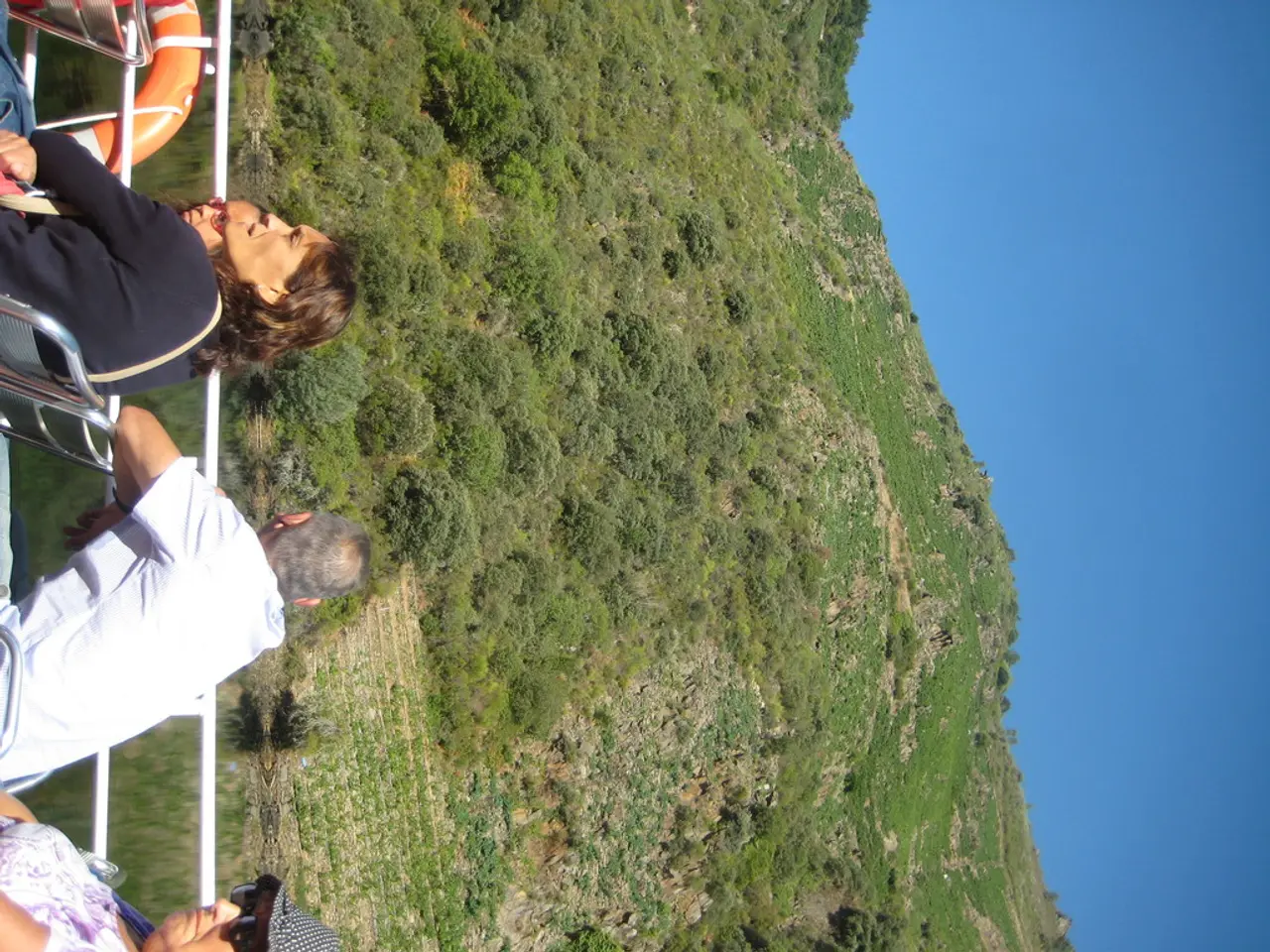Tourism hubs put stake in latest trend, 'Coolcation' - Tourism Regions Pioneering the Travel Fad
In response to the growing demand for cooler, less crowded, and more sustainable holiday destinations, tourism regions in Germany, such as Lower Saxony, the North Sea coast, Lüneburg Heath, and Hamburg, are embracing the "Coolcation" trend. This shift in travel preferences is driven by climate change, which has led to extreme heatwaves, wildfires, and unbearable temperatures in popular southern European destinations, pushing tourists towards milder climates and eco-friendly travel experiences.
According to Mario Schiefelbein, the managing director of Nordsee, a gentle breeze at the North Sea coast helps people tolerate the heat better. This attribute, combined with the region's cooler summer temperatures, makes it an appealing alternative to traditional hotspots. Holger Heymann, the chairman of the Tourism Association of Lower Saxony (TVN), echoes this sentiment, suggesting that the region should promote "Coolcation" as a marketing strategy.
The Lüneburg Heath, while not explicitly mentioned as a cooler holiday destination in the summer, is considering promoting the trend as a way to attract visitors. However, the tourism agency Nordsee in Wilhelmshaven is specifically focusing on promoting "Coolcation" at the North Sea coast. Interestingly, the Hamburg Tourismus GmbH believes that the city could potentially benefit from the "Coolcation" idea in the future.
The "Coolcation" trend aligns with the growing traveler demand for sustainability. Tourists are increasingly seeking destinations that practice eco-friendly tourism and community involvement, attributes that many northern German tourism regions are promoting to attract eco-conscious visitors. The expansive Lüneburg Heath and the North Sea coast offer less crowded environments, abundant nature, and lower risks of heat-related discomfort or health issues, making them attractive options for travelers.
By promoting “Coolcation,” these regions are strategically positioning themselves as desirable destinations in a climate-sensitive tourism marketplace. They aim to mitigate visitor loss due to southern Europe’s heat issues and to capture growing segments of sustainable and comfort-seeking travelers. The tourism agency Nordsee has already taken steps to capitalise on this trend, placing advertisements in hotter German cities during a heatwave, promoting a cool-down at the North Sea.
Despite the potential benefits, the "Coolcation" trend primarily affects Nordic countries such as Scandinavia, Iceland, and Scotland. However, it appears that the trend could soon extend to Germany, with the Lüneburg Heath GmbH planning to start advertising in southern Spain. Currently, 90 percent of foreign tourists in the Lüneburg Heath come from the Netherlands and Denmark, but they are now considering Spain, Italy, and Turkey as alternative destinations.
As the world grapples with the effects of climate change, the "Coolcation" trend could reshape summer travel plans for many, offering a sustainable and comfortable alternative to traditional hotspots.
- The community policy in Germany's tourism regions, such as Lower Saxony, Lüneburg Heath, and Hamburg, could potentially involve promoting the "Coolcation" trend as a strategy to attract eco-conscious and comfort-seeking travelers.
- Employment policies in these tourism regions may need to adjust to accommodate the growing demand for eco-friendly tourism experiences, such as promoting sustainable practices and community involvement, as part of the "Coolcation" trend.




